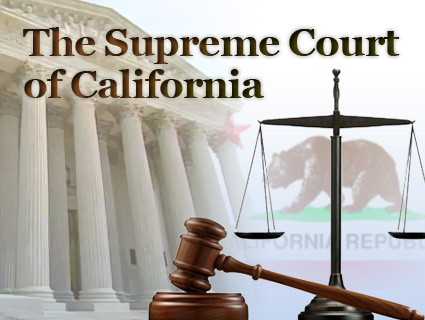As many of you know, the gaming industry is constantly targeted in the legal system, usually due to the level of violence in video games. Ironically, the industry is under fire for games that feature characters under fire. Today, I’d like to focus on the legal issues that have recently engulfed the gaming industry and discuss their importance to us as consumers.
California and the Supreme Court
 |
| sdgln.com |
Back in June of 2011, the Supreme Court Justices, in a 7-2 ruling, refused a California law prohibiting the sale of violent video games to patrons under the age of 18. The law didn’t name any specific video game, but lawyers called special attention to Postal 2. The law purposed to issue a fine of $1,000 to any one selling or renting a violent game to a minor, similar to laws that fine those who sell cigarettes to minors. The law was ultimately overturned, citing our right to Freedom of Speech.
 |
| Postal 2 Screenshot | fileplanet.com |
Justice Stephen Breyer stated his feelings about the law saying, “… The statue prevents no one from playing a video game, it prevents no adult from buying a video game, and it prevents no child or adolescent from obtaining a game provided a parent is willing to help.”
He has a point. The law does not explicitly say that children cannot play the games, just that they cannot purchase it. Again, this is much like cigarette laws, where purchasing is the criminal act, not participating in it. Personally, I feel this is entirely flawed. If you’re going to do it, do it right. I’ve always had a problem with cigarettes laws, as those that exist don’t actually serve to stop the negative behavior, rather it serves as a deterrent. The same logic applies to this video game restriction as it only creates roadblocks, instead of stopping the problem all together. And, more importantly, is there even a problem?
The Video Game Health Labeling Act of 2011
 |
| gamespy.com |
Apparently Congressman Joe Baca thought so. Back in 2011, Baca thought that he’d draw an even bigger comparison between cigarettes and video games when he proposed an act that would force game manufacturers to don a label stating “WARNING: Excessive exposure to violent videogames and other violent media has been linked to aggressive behavior.” The fact that this bill was met with little to no reception back in 2009 didn’t discourage Baca from trying again, this time with a co-sponsor.
 |
| gamefront.com |
While I’m all for the ERSB ratings that are found on both the front and (in greater detail) back of the video game cases, I feel this would be overkill. What is to stop us from putting labels on every magazine that read, "WARNING: Reading this may increase your self awareness to a point where you overanalyze yourself and become so critical of your appearance that your self esteem will all but disappear.”
The repercussions of entertainment have always been a cause of concern for consumers. As new forms of media evolve, so evolves the ability to blame new forms of media for society’s problems. Remember Marilyn Manson and how he taught your kid to shoot up their high school? Remember Braveheart and how it taught you to moon your enemies and then murder them? If we are to overly criticize one medium, let us overly criticize them all, equally. Let us suspend reality for a moment and pretend video games are the sole type of media being consumed by today’s youth. Many studies have been conducted to ascertain the nature of the link between violence and video games and studies from The Harvard Medical School Center for Mental Health and The British Medical Journal, among others, have shown no conclusive connection between the two. So even if I were to believe that video games are the only place these kids are getting their information, how am I supposed to believe they are detrimental to a minor’s mental health? It is surprising that these lawsuits even come about. I mean, we do want to be responsible for our own actions, don’t we?
How Lineage II “ruined” a man’s life
 |
| linega2media.com |
In 2010, a man named Craig Smallwood filed a lawsuit against NCsoft of South Korea, for compensatory damages because their game Lineage II was too addictive. Smallwood had logged between 20,000 hours between 2004 and 2009. He alleged that he “would not have begun playing if he was aware that he would become addicted to the game.” Ultimately District Judge Alan Kay ruled that the case could at least go to trial stating, “…The court finds that plaintiff [Smallwood] has stated a claim for both negligence and gross negligence.” While the case isn’t likely to go any further, it does raise some questions.
This is exactly why we have legal officials pushing these laws and bills that prohibit and restrict our freedoms as America consumers. When people fail to take responsibility for their own actions, it makes it okay for someone else to make decisions for us. And when that happens, bills like the previous two will only have more reason to be passed.
And that will be a sad, sad day.



 11:34 AM
11:34 AM
 Dave Martin
Dave Martin
0 comments:
Post a Comment